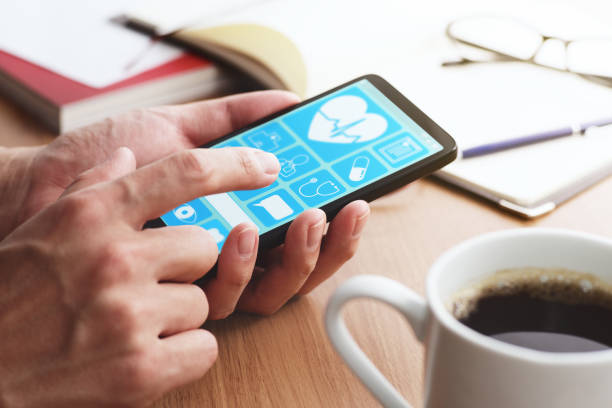The $350B digital health market will nearly double in five years. Despite the 2023 telemedicine app development boom, there are many more great product ideas and market opportunities.
According to search term analysis, patients have historically been most interested in screening and diagnostic tools, particularly online symptom checkers. Healthcare tech is vulnerable and in demand, making your work valuable. Medical app development differs.
1. Legal issues
Healthcare is bureaucratic. Tech matters less than legal and clinical safety.
You may want to help people with their health issues and simplify their lives, but you may not know which regulations your Healthcare App Development needs. Medical devices include apps that calculate medicine doses or diagnose injuries or conditions. The MHRA requires a CE quality mark.
Market geography determines product laws. Privacy and security are popular topics. Product issues may differ. The healthcare industry has suffered financially from data breaches. IBM reported that the 2022 data breach cost $7.13 million and exposed 80% of customers’ personal data.
Legal and regulatory compliance from the start prevents major changes and high costs. Thus, a lawyer or legal firm is advisable for legal matters.
2. Investigate insurance market entry.
Insurance coverage for your medical service or app will exponentially increase users. However, state laws will mostly determine whether an insurance company covers a new health tech product.
3. Apple and Google rules.
Apple’s developer guidelines state that medical apps “may be reviewed with greater scrutiny” and that Google reviews all apps “case-by-case”. Apple prohibits apps that use device sensors to take X-rays or measure blood sugar.
4. Domain-savvy developers
You must hire healthcare developers to build your product from scratch and join the “core” product team. Healthcare knowledge will help a programmer collaborate with users and product managers faster. This complex domain makes it hard to solve some health issues.
Remember that specialist developers cost more, and certain applications simply need an experienced developer with clear criteria.
Minor issues and custom health app development assistance may not require deep domain knowledge. Hire freelancers or an outsource Java development team.
5. Medical knowledge
A medical co-founder or consultant is recommended. Product failure is likely if the healthcare solution’s professional experts lack expertise. Experts must also support health tech products under some regulations. Maintain a reputable, qualified expert panel.
6. Design
Pressing the wrong button in the medical app can at least result in incorrect patient fields, which can complicate data work and even cause tragedy.
However, a well-designed interface simplifies patient-physician communication and reduces healthcare costs.
Remember accessibility. In a previous blog post, we stressed product accessibility in healthcare. An app may be used by a disabled person or in an emergency.
7. Compatible and interoperable
Healthcare apps should match the hardware usage context. The app’s target audience’s devices? Young patients prefer mobile devices, medical workers tablets, and elderly people computers.
Interoperability links and organizes applications, computers, and systems. Hospital employees utilize dermatological sensors, programming applications, functional control systems, EHR solutions, and more.
Conclusion
Successful players must be agile, flexible, and fast to adapt to the uncertain future. Players must be able to act quickly in this fast-paced industry to succeed.



Интернет магазин русских сувениров «Сувенирный двор», хохлома закажите русские сувениры в нашем интернет-магазине!
It’s nice to see the best quality content from such sites.
I really like reading through a post that can make men and women think. Also thank you for allowing me to comment!
Thank you for great article. I look forward to the continuation.
Some really excellent info Sword lily I detected this.
Thank you for great content. I look forward to the continuation.
Thank you for great article. I look forward to the continuation.
Very nice blog post. I definitely love this site. Stick with it!
I appreciate you sharing this blog post. Thanks Again. Cool.
Good article with great ideas! Thank you for this important article. Thank you very much for this wonderful information.
Some really excellent info I look forward to the continuation.
I m going to bookmark your web site and maintain checking for brand spanking new information.
I really like reading through a post that can make men and women think. Also thank you for allowing me to comment! Watch bbc.persian
I am truly thankful to the owner of this web site who has shared this fantastic piece of writing at at this place.
I do not even understand how I ended up here but I assumed this publish used to be great
This is my first time pay a quick visit at here and i am really happy to read everthing at one place
This was beautiful Admin. Thank you for your reflections.